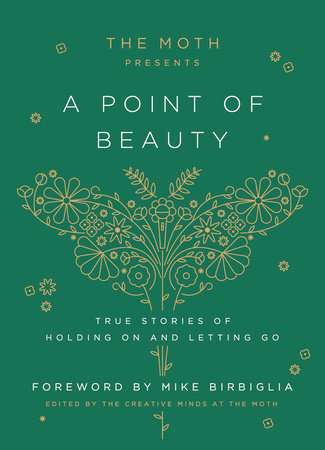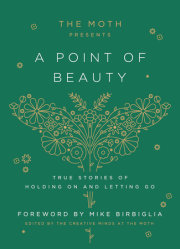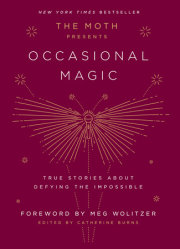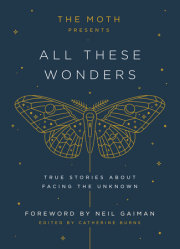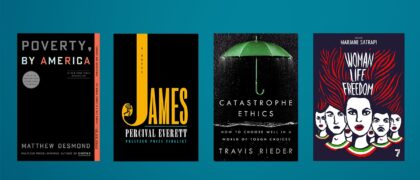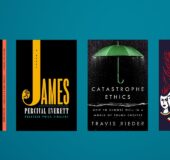IntroductionOn a chilly November evening in 2021, a crowd gathered under the cathedral ceiling of the gorgeous St. Ann & the Holy Trinity Church in Brooklyn Heights where, for the first time in nearly two years, we were able to safely hold an in-person indoor event. St. Ann’s is an active house of worship that makes ends meet by moonlighting as a live-event space. There was a crackling energy in the room. We were thrilled to be gathering again, even though we were a bit anxious—not just about the risk of another pandemic surge but also about making conversation after being isolated for so long. People made nervous jokes about how they’d forgotten how to make small talk. Everyone was wearing masks (many matched to their outfits), and a venue that pre-pandemic would have been packed shoulder to shoulder had been sold to just half capacity, to be as safe as possible.
We sat in candlelight watching the show, and it was such a relief to hear stories told live again—to be in the room with the storytellers and the audience, feel the energy flowing between them, and hear the applause. While we were grateful for the technology that had allowed us to produce online shows from our collective living rooms during the darkest months, we had deeply longed to be back together.
That Brooklyn night, Maniza Naqvi told her moving story about resuscitating a seventy-year-old bookstore in Karachi, Pakistan. In the story she says, “When the noise and ugliness got so loud, I focused in on a point of beauty.” That phrase, “a point of beauty,” stuck in our heads because that night, and those stories, were a point of beauty after coming through one of the most challenging periods the world had faced in recent memory.
A year later, when we sat down to compile this collection, we wanted to bring that feeling of electricity in the room to the page. So many remarkable stories had been told since our last book (we read more than four hundred Moth stories as we narrowed them down to these fifty!). It can be difficult to find a cohesive title for a collection that spans time, place, and people with wildly different experiences. The nature of a title is to pull everything together, and The Moth pulls stories from every corner of humanity. But we kept coming back to Maniza’s story.
The phrase “a point of beauty” speaks to seeing potential, hope, and possibility, the diamond in the rough: Maniza seeing how a dusty, neglected bookstore could become a beautiful literary hub; an elite navy instructor believing that his student could be a “Top Gun” pilot in spite of a very rough initial landing; a future Lucha Libre star getting his butt handed to him during his first match.
It also shines light on moments of grace that might be missed if we move too quickly or let ourselves become distracted: neighbors finally finding a way to connect after living next door for decades; a woman in her eighties optimistically buying fancy new underwear for her first date in years; a prison inmate taking responsibility for his own worth after being treated kindly by a nurse; a teen assuming the reins of a family tradition from her dying grandfather.
It’s also about how improbable, ridiculous, and whimsical the world can be: a 23andMe genetic test taken for fun revealing painful family secrets; a culture critic panicking when the famous filmmaker she’s publicly rebuked calls her on the phone to talk about it; or a distraught mother processing unexpected family news in a big-box store because “you can work out
a whole lot of shit in the aisles of Target.”
The subtitle “True Stories of Holding On and Letting Go” resonated with all of us. These stories help us see how we may find beauty in strengthening frayed bonds but also in having the courage to walk away from things that no longer feed our spirit; in admitting that some things may just not be meant for us, and at times it’s essential to prune dead branches if a tree is going to bloom again in the spring. Certainly the last few years have taught us so much about what’s worth holding on to: our relationships with those we love the most, our understanding of ourselves, and of course gathering, listening to, and telling stories.
But it takes strength and bravery to explore your story and share it with the world. And by reading this book, you also become an important part of the process. The Moth’s longtime Board co-chair Ari Handel put it well when he spoke at The Moth’s 25th Anniversary celebration: “There’s the stage, and there’s the seats. And if telling stories can change lives, listening to stories [editor’s note: or reading them!] is just as important—it can change minds. Too often we talk past each other, through each other, too separated by experience and belief and tribe and predisposition to even hear each other’s arguments . . . but stories are different. When you listen to a person’s story told from their vulnerable heart, those walls of difference and indifference crumble just a bit, and our basic common humanity shines through.”
These stories show us that even on the darkest of days there is usually something beautiful to observe or discover if you’re open to it. A soldier finding friendship while working as a guard in one of the world’s most notorious prisons. A homeless child taking unexpected solace in her collection of Bratz dolls. Or a mother remembering a tender moment with her son Ben that happened in a Starbucks in Connecticut less than an hour before he was murdered.
These stories help us process what can often feel like an overwhelming stream of sad news that comes at us like a fire hose through our phones, televisions, and radios. Ari continued, “I thought about the Moth show at St. Ann’s where a Sandy Hook mom told a story about her son that made me cry in a way I never did when faced with the numbing impersonal magnitude of it all.”
That Connecticut mom, Francine Lobis Wheeler, told her story the same night Maniza spoke of her magical bookstore in Pakistan. Even though her story was devastating, Francine wanted to let some light in as well. The audience laughed with her as she recounted the many sweet, funny things that Ben said on that terrible morning. We were thrilled that her humor—a foundational part of who she is— came through, and her radiance and wit allowed the audience to take in that day in a new way. She showed us that it’s possible to find tiny moments of brightness and beauty—moments that are worth holding on to—in a world that can sometimes feel brutal.
It has been a joy putting this collection together, and we hope that these stories will open your world as they have ours.
With love,
—Catherine Burns, on behalf of the Moth editing team: Meg Bowles, Emily Couch, Suzanne Rust, and Chloe Salmon
Copyright © 2024 by The Moth. All rights reserved. No part of this excerpt may be reproduced or reprinted without permission in writing from the publisher.

